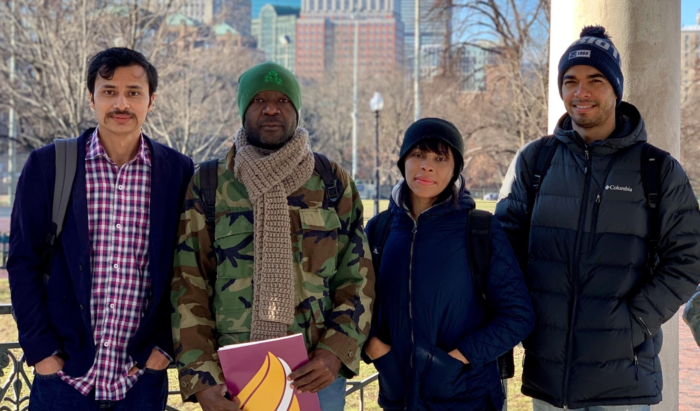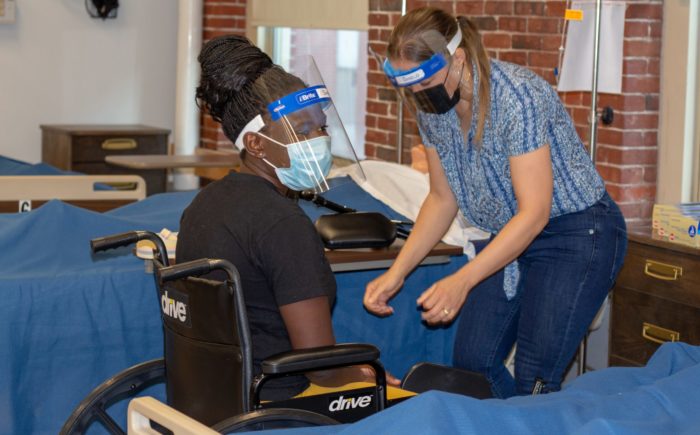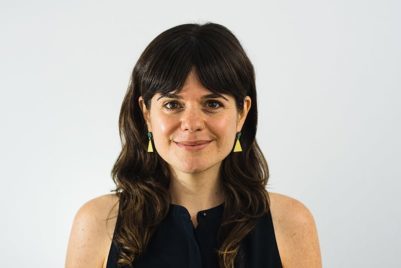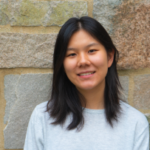
A Boston refugee support center navigates a year of the pandemic.
Rahmatullah Aka got an email from his supervisor telling him to pick up his laptop because the International Institute of New England (IINE), an immigrant and refugee support center, would probably close due to COVID-19 on Tuesday, March 17, of last year. Aka stopped by the office the following day after picking up an Iraqi refugee family at Logan Airport who had come to the United States to reunite with their brother.
“[After] I picked up my computers, I realized some of my work still remained in the office,” Aka said. “I thought maybe tomorrow or Monday, I will be able to come to the office.”
However, the next Monday never came. When Aka picked up the family from the airport that day in March, he didn’t realize that his office would be closed for a year—and that due to COVID-19 travel bans, he wouldn’t welcome another refugee to Massachusetts until August.
Aka has been the community service manager for IINE for four years. The organization, which established its first location in Lowell in 1918, resettles, educates, and provides job training and opportunities for immigrants and refugees. Today, IINE supports immigrants and refugees from three locations in Boston, Lowell, and Manchester.
Like similar agencies across the country, IINE had to hastily shut its doors at the start of the pandemic and has faced significant hurdles over the past year in its efforts to continue its mission of helping immigrants and refugees.
“We were not sure at the beginning [of the lockdown]. We were just relying on the [hope that the] next day things will change,” Aka said.
IINE’s chief program officer, Emma Tobin, said a major challenge of the shutdown was that many of the organization’s clients rely on walk-in services to deal with emergency situations, or simply feel more comfortable speaking to someone face to face.
“People are coming from places where [making an appointment is] not part of their community and culture,” Tobin said. “They are much more likely to just walk into the office and be like, I need help right now.”
This created challenges for IINE’s staff, which found it difficult to make time for virtual walk-ins when the organization was forced to move services online. Aka recalled how he would often be on the phone with one client while others were trying to call in at the same time. To make matters worse, many clients have language barriers and are not familiar with digital devices like laptops and smartphones, let alone making Zoom calls or uploading and sending documents.
“We did a lot of digital literacy building both informally and formally,” Tobin explained. “We actually created English classes on WhatsApp to get people comfortable and transition them on to Zoom. [Because] it’s such a global app, a lot of them [were already] used to using it to message and talk to people from back home.”
Advocates also spent a lot of time at the beginning of the pandemic teaching clients how to take pictures of legal documents and use secured links to send them. To further ease the transition, IINE used emergency funding to provide families with computers and smartphones so they could connect to the internet.
IINE also moved its educational programs, such as its English-language classes and its certified nursing assistant program, online. And moving forward, the organization is developing new online programs. Its pre-apprenticeship construction and maintenance training program, developed in partnership with MassHire Metro North and CONNECT, launched in February.

Trained with nowhere to work
While IINE was able to successfully transition to remote services, unemployment quickly became a major problem for its clients. The organization’s case management program typically only serves clients for one year after their arrival to the US, connecting them to housing, healthcare, employment, and other services. But Aka said many clients were forced to come back to the organization after losing their jobs due to the shutdown.
“[At the beginning of 2020] I basically had 86 clients, but because of the pandemic that number increased. People lost jobs, people were struggling with rental problems, people needed help with connecting to the social welfare benefits,” Aka said. “We noticed that within the first three weeks [into the lockdown], clients started reaching out for help.”
According to Aka, nearly all of his enrolled clients lost their jobs because most of them were participants in IINE’s hospitality training program and had been placed in jobs at coffee shops, hotels, restaurants, and airports—sectors that were immediately impacted by the lockdown.
To support the increased demand for its services in the face of both pandemic restrictions and the Trump administration’s broader anti-immigrant stance, IINE has had to look for new sources of funding. As Tobin explained, they rely on a public-private model that includes federal funding and state funding from Mass and New Hampshire, as well as private funding from individuals, foundations, and corporations. But the money they receive from the federal government can only be used to fund their staff.
“We pay for our staffing with money that’s tied to individual refugees, which also ties to all these other public contracts. [But] because under Trump we resettled so few refugees, all those public contracts have just continued to shrink,” Tobin said.
Picking up the slack
Private donations increased during the pandemic, filling in the gaps where public funding fell short. This allowed IINE to create an emergency fund at the beginning of April to cover food and rental assistance for those who fall through the cracks of public benefits programs, especially in cases of new refugees and immigrants.
IINE was able to transition to offering remote services and diversify its funding sources relatively smoothly, but the struggle by its government partners to provide remote services in a timely manner proved to be a major headache for the organization.
Aka experienced these delays firsthand in his efforts to get the Issa family from Iraq settled in the US. IINE’s intake process for refugees includes enrolling them in social benefits in Mass, like food stamps and medical health insurance, as well as doing refugee health assessment and applying for social security cards. Normally, these things should be completed within the first 30 days of a refugee’s arrival, but Aka said that during the pandemic it took much longer for the Issa family.
“When a refugee family is coming, they can apply for a social security card in the first week. But during the [pandemic], it didn’t happen until May,” Aka said. “[Government offices] were not sure how to create a remote system for the first month.”
On top of paperwork delays, IINE’s staff members have also faced unexpected challenges and say that often they are sailing in uncharted waters.
“Case management is [clients calling and saying], It’s 25 degrees outside and my heat stopped working. My landlord says that the fuse blew and I have to go into the basement and flip the switch, but I don’t know what a fuse looks like,” Tobin said. “It’s not just about transitioning your business, but transitioning your life.”
Aka is fortunate enough to live with his family but says that working from home means more overtime and a harder time communicating with clients.
“The isolation of being in one place [is hard].You just stay there, work there, you’re not able to make an interaction with a client that you used to before,” Aka said. “It is difficult for the client to express their concern, difficult for the clients at the beginning to find a way of communicating to the staff members over the phone.”
The isolation was difficult to handle for clients as well. Many of them were not used to dealing with roommate conflict or family arguments.
“Before, they were all working and busy. Now everybody is at home,” Aka said. “So, there are a lot of issues at the house with cleaning, with [things] like somebody speaking loudly on the phone and disturbing one another. We receive calls asking what to do.”
According to Tobin, in addition to roommate issues, increased domestic violence and abuse was a major area of concern. “The number of families that are experiencing family conflict and violence is kind of through the roof,” she said. “We’re the ones talking to all the families who are having those challenges.”
To help manage those challenges, in July IINE joined a personal care training program created by the United States Commission for Refugees and Immigrants. The program, which has been extended due to its efficacy, helps refugees learn the basics about COVID-19, including how the virus spreads, its symptoms, social distancing, and mask-wearing, as well as how to get tested. The program also offers advice on conflict management and self-care, and connects staff members at organizations like IINE with psychologists to help clients alleviate stress and anxiety.

The finish line
Despite all of the hurdles, IINE staff members say they are proud of what they’ve accomplished over the past year. Tobin recalled how in March, “I was like, how is this ever going to work?” Six months later: “Oh my gosh, we did it.”
For Tobin, a particular source of pride is the certified nursing assistant program, which she founded and manages.
“We have so many clients who work as certified nursing assistants and home health aides, and the number of them that have been infected with COVID is mind-blowing,” Tobin said. “Watching them go through that, watching their families go through that, has just been really scary and hard and sad. [But] seeing the way these women persevere and get back and say, This is the way I give back, by being a certified nursing assistant, is amazing.”
For his part, Aka is happy that after an arduous settlement process, the Issa family now has all the documents and support they need. They moved to their new home in June, the parents and their adult daughter were able to find jobs in retail, and the family’s son enrolled in school.
It’s one success story. Aka will tell you, there’s a seemingly insurmountable amount of work that still needs to be done.
This article was produced in collaboration with the Boston Institute for Nonprofit Journalism
Ziqi Wang studied journalism at Emerson College

